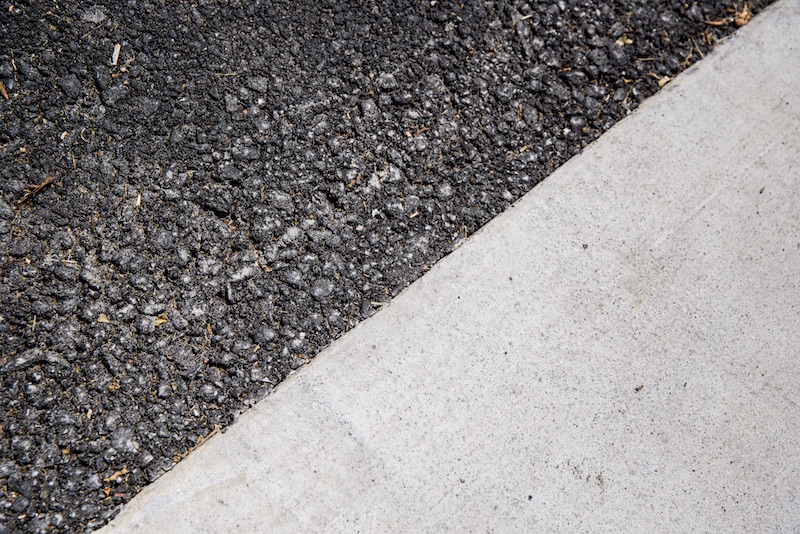Installing a new driveway can enhance the entire look of your house. But while you are undertaking this new project, you may understandably find yourself torn between installing a concrete or asphalt driveway. Two of the most common driveway surfaces, both materials are great choices despite their differences. So how do you decide between the two? We’re here to help! Check out our list of the concrete vs. asphalt driveways to determine which is the best choice for you..
Concrete Driveways
A concrete driveway is a mixture of cement, sand, and gravel poured and left to cure for a week, creating a strong and durable material. Pros of concrete driveways include the low maintenance cost and requirements. They simply require routine cleaning and degreasing. Concrete driveways can be expected to last 50+ years, and are even able to handle heavier loads than asphalt. If you will be parking trucks, RVs, or other heavier vehicles, concrete is likely a better choice for you. Finally, concrete driveways can be color customized, absorb less heat than asphalt, and are recyclable.
However, the initial cost of a concrete driveway is more than asphalt, in addition to a more difficult installation process. And while it requires little maintenance, it is more expensive and complicated to repair, replace, or resurface than asphalt – and stains far easier. Lastly, it doesn’t perform well in cooler temperatures, making it better suited to warm areas.
Asphalt Driveways
Asphalt is a mixture of stone and sand, but it contains petroleum products as an adhesive base Pros of asphalt driveways include their affordable installation costs, turnaround time between installation and usability, as well as their lifespan of 20 to 30 years. Asphalt driveways are also highly attractive, known for increasing the value of your home due to their ease of maintenance, repair, and inability to show stains as visibly as concrete. Lastly, asphalt is recyclable and durable – better at draining rainwater and less prone to cracking in cooler temperatures.
The initial price might be cheaper than concrete, but constant maintenance gives asphalt a more expensive life cycle – requiring resealing or resurfacing every 3 to 5 years. And while it does have a decent lifespan, it is still less durable when compared to concrete. Lastly, asphalt is not ideal for warmer temperatures, as it absorbs heat and can become hot or even gooey in extreme temperatures.













